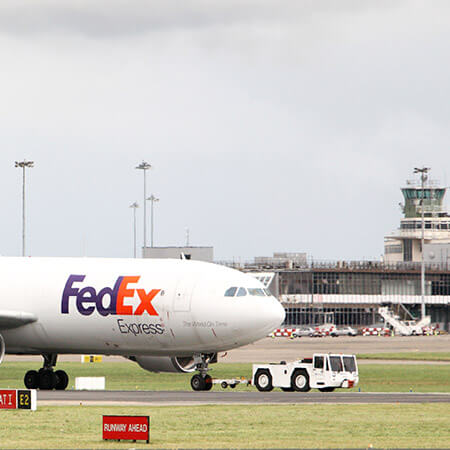Dublin is a major global hub for fund administration, aircraft leasing, insurance and a range of wholesale banking activities. Many financial services firms have made the city their home.
Overall, Ireland is the fourth largest provider of wholesale financial services in the EU. The country’s robust regulation and skilled workforce attracts them here. Excellent investment and tax incentives help too.
The combination of a 12.5% corporate tax and an exceptionally extensive set of double tax agreements with 76 countries, 74 in effect, makes Ireland a highly tax-efficient location. Such efficiency is particularly beneficial for international financial service operations who want to invest in Dublin.
Aviation leasing
This is an area in which Dublin is particularly successful. Ireland’s share of the global leasing market stands at around 60%. As a result, more than half of the world’s aircraft are now owned and managed in Ireland.
The Irish Financial Services Centre
Based in the heart of Dublin, the centrality of the Irish Financial Services Centre is a key reason for the concentration of financial institutions in Ireland’s capital. The Irish government established the IFSC in 1987 in order to centralise a range of internationally traded financial services. Think banking, fund management and specialised insurance. Since then, it has also expanded massively.
Over time, the adjacent Docklands area of the city has become an expansion of the IFSC. It now extends both north and south of the River Liffey and as far east as the 3Arena. Over 500 firms operate within this area, including more than half the world’s top 50 banks and top 20 insurance companies.
Foreign Direct Investment
Since 2015, FDI investment in Financial Services in Dublin has risen dramatically. And this trend is expected to endure as UK-based financial services companies continue to move their operations to Dublin as a result of Brexit.
As of 2023, Ireland has had an exceptionally strong performance in terms of attracting Foreign Direct Investment (FDI). With a 21% increase in the number of FDI projects in 2022, Ireland has remained within the top 10 most attractive locations for investments across Europe.
Over the past year we have seen software and IT services taking the lead as the largest sector across Ireland for FDI, with a staggering 31% of total projects in this field.
Companies in financial services sector include:



